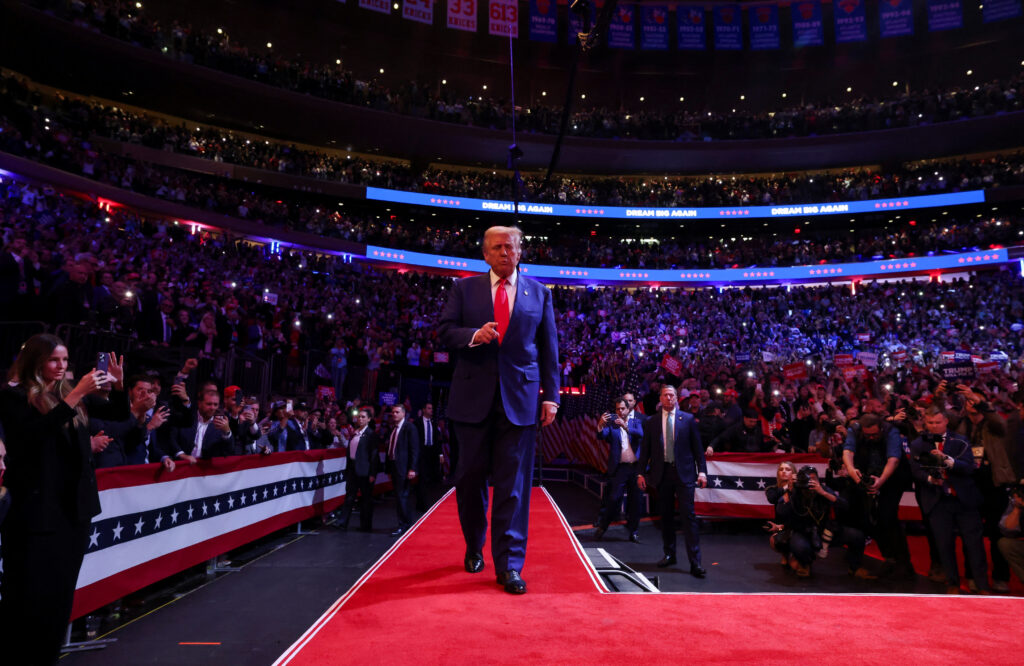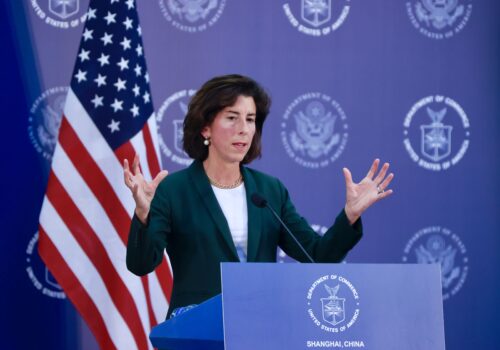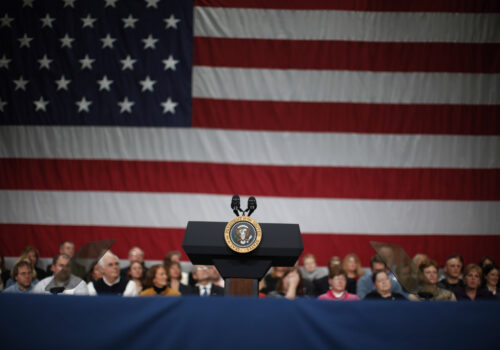Read “What Africa can expect under a Kamala Harris administration” here
If nothing else, former US President Donald Trump is a numbers guy. So when he thinks of Africa, he likely sees the incredible numbers reflecting the massive youth movement on the continent. And with that youth movement comes, of course, youthful energy and innovation.
That’s why, as a former Republican member of the US Congress from Minnesota, I am hopeful about what a second Trump administration would do for the United States’ relationship with African countries and organizations.
If Trump wins the presidency again in November, his next administration would likely seek to unleash as much of that youthful energy as possible. It would likely build on some important existing initiatives, some of them launched by other Republican presidents: efforts such as those led by the Millennium Challenge Corporation and its compacts with African countries, as well as creative initiatives from the US International Development Finance Corporation.
For US companies working on the continent, one could expect a second Trump administration to streamline processes, rules, and regulations to make doing business easier—and faster—than in previous years.
And under the leadership of Trump, who has vast experience in fields such as sports and entertainment, his administration would strongly support the partnerships that are developing all across the continent between the United States and Africa based on shared interests.
Given all those demographics that make Africa more important to a second Trump administration than to the first, another Trump term would likely focus on enhancing trade with the continent.
It’s more likely that the administration would form bilateral trade agreements than any multination deals. But there is no reason to believe that Trump would seek to weaken the African Growth and Opportunity Act. As it approaches its twenty-fifth anniversary, the legislation—up for reauthorization in 2025—is finding broader and deeper support in the business communities on both continents.
Indeed, whoever becomes the next US president will feel compelled to encourage such economic interaction to counter the massive presence of China on the continent. Given Trump’s pledge to impose substantial tariffs on Chinese imports to the United States, it is likely that the US-China bilateral relationship will become even more contentious with another Trump presidency.
There is already ample evidence that the US-China rivalry will intensify on the African continent, especially when it comes to the United States’ increasing focus on critical minerals and their supply chains.
Lastly, perhaps the elephant in the room when it comes to how a second Trump presidency might impact African countries, is how it will address the threat from terrorist groups. All across the continent, whether in Somalia or Nigeria or Libya, various forces of terror threaten not only African but global stability.
A second Trump administration would be likely to confront these threats forcefully and frontally, by strengthening US Africa Command and by assisting African antiterror efforts.
Regardless of which candidate wins the presidency, the next administration will enter into office with urgent challenges it will need to address on the African continent. African leaders will be watching to see whether the next US president can solve those challenges while simultaneously tapping new opportunities for partnership.
Vin Weber is a former US representative from Minnesota and a former advisor to several Republican campaigns for president.
Further reading
Tue, Oct 29, 2024
What Africa can expect under a Kamala Harris administration: A reinvigorated strategy
AfricaSource By Benjamin Mossberg
Harris would walk into the office on day one with significant Africa experience having played an important role in supporting the Biden administration’s Africa agenda.
Wed, Sep 25, 2024
What the next administration should do to ensure US economic and national security
New Atlanticist By Kimberly Donovan, Maia Nikoladze
The next administration must protect sensitive US technology, drive the energy transition, and safeguard the global financial system.
Sat, Oct 19, 2024
The US is electing a wartime president
Inflection Points By Frederick Kempe
Neither US presidential candidate has yet addressed the generational challenge posed by closer collaboration among China, Russia, Iran, and North Korea.
Image: Republican presidential nominee and former U.S. President Donald Trump walks to take the stage during a campaign rally at Madison Square Garden, in New York, U.S., October 27, 2024. REUTERS/Brendan McDermid



